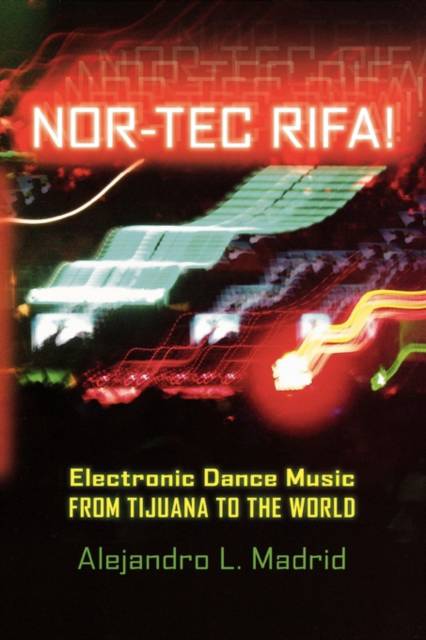
En raison d'une grêve chez bpost, votre commande pourrait être retardée. Vous avez besoin d’un livre rapidement ? Nos magasins vous accueillent à bras ouverts !
- Retrait gratuit dans votre magasin Club
- 7.000.000 titres dans notre catalogue
- Payer en toute sécurité
- Toujours un magasin près de chez vous
En raison de la grêve chez bpost, votre commande pourrait être retardée. Vous avez besoin d’un livre rapidement ? Nos magasins vous accueillent à bras ouverts !
- Retrait gratuit dans votre magasin Club
- 7.000.0000 titres dans notre catalogue
- Payer en toute sécurité
- Toujours un magasin près de chez vous
217,95 €
+ 435 points
Description
At the dawn of the twenty-first century, the Nor-tec phenomenon emerged from the border city of Tijuana and through the Internet, quickly conquered a global audience. Marketed as a kind of "ethnic" electronic dance music, Nor-tec samples sounds of traditional music from the north of Mexico, and transforms them through computer technology used in European and American techno music and electronica. Tijuana has media links to both Mexico and the United States, with peoples, currencies, and cultural goods--perhaps especially music--from both sides circulating intensely within the city. Older residents and their more mobile, cosmopolitan-minded children thus engage in a constant struggle with identity and nationality, appropriation and authenticity. Nor-tec music in its very composition encapsulates this city's struggle, resonating with issues felt on the global level, while holding vastly different meanings to the variety of communities that embrace it. With an impressive hybrid of musicology, ethnomusicology, cultural and performance studies, urbanism, and border studies, Nor-tec Rifa! offers compelling insights into the cultural production of Nor-tec as it stems from norteña, banda, and grupera traditions. The book is also among the first to offer detailed accounts of Nor-tec music's composition process.
Spécifications
Parties prenantes
- Auteur(s) :
- Editeur:
Contenu
- Nombre de pages :
- 272
- Langue:
- Anglais
- Collection :
Caractéristiques
- EAN:
- 9780195326376
- Date de parution :
- 21-03-08
- Format:
- Livre relié
- Format numérique:
- Genaaid
- Dimensions :
- 163 mm x 236 mm
- Poids :
- 498 g

Les avis
Nous publions uniquement les avis qui respectent les conditions requises. Consultez nos conditions pour les avis.






